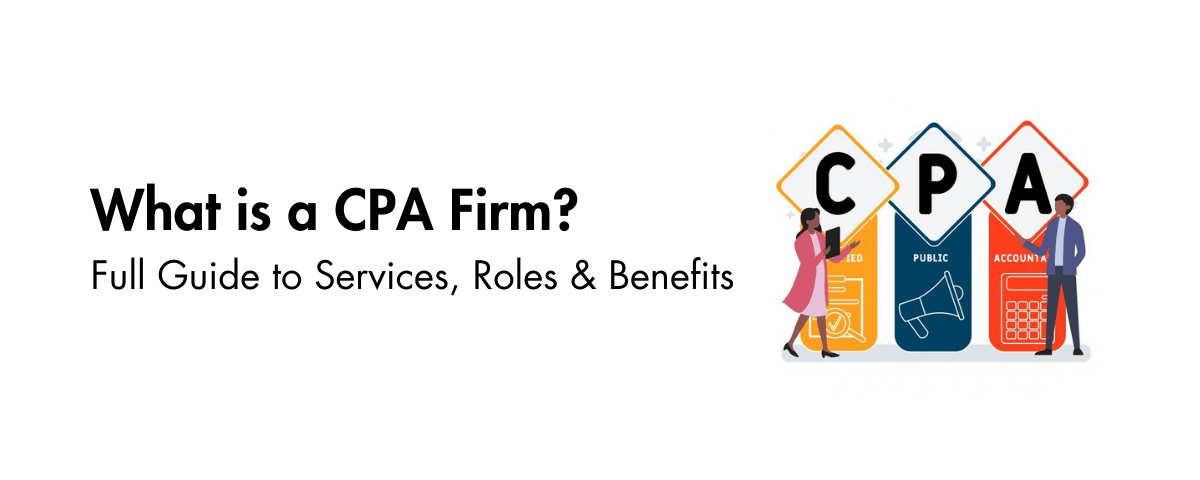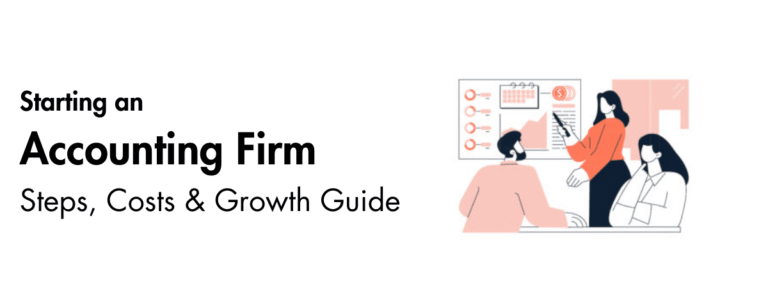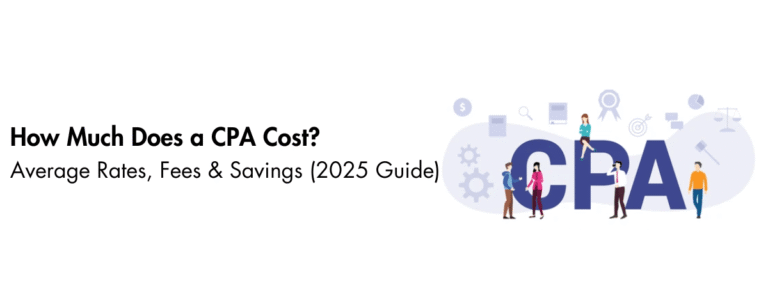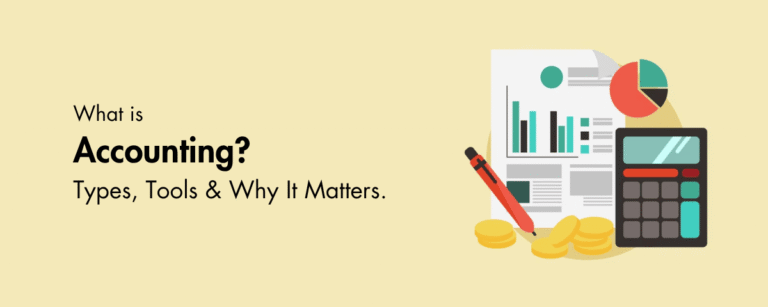Bookkeeping was tidy, but the lender wanted independent assurance, and that meant a CPA firm. Two weeks later, she had a clear review report, a calmer board meeting, and the financing to keep hiring. If you have ever faced that kind of moment, you already understand why CPA firms matter.
A CPA firm is a licensed practice owned and led by Certified Public Accountants that can provide audits, reviews, compilations, and advanced tax and advisory services. These firms follow strict independence and quality rules, and for audits of public companies they are subject to PCAOB inspections. In short, when you need regulated assurance or complex tax strategy, a CPA firm is your go‑to. (pcaobus.org)
Table of Contents
- Key Takeaways
- What is a CPA and How CPA Firms Are Structured
- Licensure, Oversight, and Ethical Requirements
- Core Services Offered by CPA Firms
- How CPA Firms Differ From Accounting Firms
- When You Need a CPA Firm vs. an Accounting Company
- Fees, Value, and Fit
- Quality Control, Peer Review, and Independence
- Hybrid Approaches and Working With Remote Accountants
- How To Engage a CPA Firm
- Frequently Asked Questions
- Conclusion
Key Takeaways
- A CPA firm is licensed and led by CPAs who can perform and sign audits, reviews, and compilations, and they must meet independence and quality standards.
- Oversight includes state boards of accountancy, AICPA peer review for most firms, and PCAOB inspections for public company audits.
- Core services span assurance, tax preparation and planning, valuation, forensics, and advisory.
- Firms use structured teams, ongoing training, and documented quality management to deliver consistent work.
- Choose a CPA firm for external assurance or complex tax situations. Use a bookkeeping provider for routine accounting and payroll.
Quick note on rules in 2025: Many states still require 150 credit hours for CPA licensure, but the AICPA and NASBA approved a new optional model path in May 2025, bachelor’s degree plus two years of experience plus passing the CPA Exam, which states may adopt over time. Always check your state’s board. (journalofaccountancy.com)
What is a CPA and How CPA Firms Are Structured
A CPA is a licensed accountant who passed the Uniform CPA Exam and met education and experience requirements set by state boards. For years, most states have followed the Uniform Accountancy Act’s 150‑hour education model.
In 2025, AICPA and NASBA approved an additional optional licensure path in the model law, bachelor’s degree plus two years of experience and a passed Exam, subject to state adoption. The headline for you is this, CPA licensure signals advanced training, ethics, and authority to perform attest services.
Typical Firm Roles
- Staff and Seniors, prepare workpapers, test transactions, and draft schedules with close coaching.
- Managers, run engagements, review staff work, and communicate findings.
- Partners, set scope, sign reports, and accept responsibility for quality and independence.
- Specialists, valuation, IT audit, forensics, or SALT, step in when needed.
Larger firms often organize into audit, tax, and advisory service lines, with industry pods like SaaS, construction, or nonprofit. That structure helps your team work with people who understand your world.
Training and Competence
Expect your CPA firm to invest in continuing professional education and a formal quality program so guidance stays current, documentation is consistent, and senior reviewers challenge assumptions. In late 2024, the AICPA updated peer review standards to align with new quality management requirements, which means more emphasis on risk assessment, leadership tone, and ongoing monitoring inside firms. That is good news for you, because it raises the floor on consistency. (aicpa-cima.com)
Licensure, Oversight, and Ethical Requirements
When a firm holds itself out as a CPA firm, it has obligations beyond everyday accounting.
- State Boards, they license CPAs and firms, enforce ethics, and can discipline violations. Many states follow mobility provisions that let qualified CPAs and firms serve clients across state lines, still subject to each state’s rules. (us.aicpa.org)
- AICPA Peer Review, most firms that perform accounting and auditing undergo periodic peer review to evaluate engagements and systems of quality management.
- PCAOB Inspections, firms that audit issuers or broker‑dealers face inspections that review audit work and elements of quality control. If you work with public markets, this oversight is central.
Independence, In Plain English
Independence rules help ensure your assurance report is objective. In short, the firm, its partners, and relevant staff must avoid prohibited financial interests, certain relationships, and self‑review situations with attest clients. There are specific safeguards and disclosures when non‑attest services are provided to the same client. If a firm is not independent for a compilation, it must say so in the report. The guardrails exist to protect your stakeholders’ trust. (fdic.gov)
Core Services Offered by CPA Firms
CPA firms concentrate on work that carries weight with lenders, investors, boards, and regulators. Here is what that looks like in practice.
- Audits and Reviews
- Audits provide reasonable assurance that financial statements are free of material misstatement.
- Reviews provide limited assurance through inquiry and analytics.
- Compilations present management’s information without assurance, but the work and report still follow professional standards when performed by a CPA firm. For public company audits, the PCAOB sets standards and inspects registered firms.
- Tax Preparation and Planning From returns and notices to multi‑state planning and representation, CPA firms combine technical rules with practical judgment. You will see stronger support during IRS or state audits and complex events like stock compensation, revenue recognition tax effects, or business sales.
- Specialized Consulting Valuation for 409A or M&A, forensic accounting for suspected fraud, and due diligence for acquisitions all live here. The value is a defensible method and clear documentation your stakeholders can trust.
- Advisory and Systems Budgeting, cash forecasting, KPI design, internal control design, and pre‑IPO readiness help you run a tighter shop. When advisory touches areas later audited by the same firm, independence rules require careful scoping and capable client oversight. (cpai.com)
How CPA Firms Differ From Accounting Firms
CPA firms provide regulated assurance with licensed ownership, independence obligations, and verifiable quality controls. Accounting firms focus on bookkeeping, payroll, and internal reporting.
| Dimension | CPA firm | Accounting firm |
| Oversight | State licensure, AICPA peer review, PCAOB inspections for issuer audits | Business registration, no peer review or PCAOB |
| Services | Audits, reviews, compilations, complex tax, valuation, forensics, advisory | Bookkeeping, payroll, month‑end reporting |
| Independence | Required for attest clients, with restrictions and safeguards | Not applicable to non‑attest services |
| Pricing driver | Assurance risk, licensed expertise, partner review | Transaction volume and efficiency |
These differences explain why CPA firm fees can be higher. You are paying for regulated assurance, senior review, and the systems behind the work.
When You Need a CPA Firm vs. an Accounting Company
Use a CPA firm when the stakes include outside trust or complex judgment.
- External assurance, your lender, board, or investors want an audit or review.
- Complex tax, multi‑state nexus, stock options, income allocation, controversy, or representation needs.
- Formal valuation or forensic work, when method and documentation must stand up to scrutiny.
Use an accounting company when you need reliable processing.
- Day‑to‑day bookkeeping, payroll, reconciliations, AP, AR, monthly close, and management reports.
- Controller support for policies, checklists, and close cadence.
Many teams adopt a hybrid model, a bookkeeping provider handles daily operations and a CPA firm handles quarterly reviews, tax returns, and audits. This split gives you speed and cost control without giving up independence.
Fees, Value, and Fit
On average, CPA firms cost more than non‑CPA providers, often by 20 to 100 percent, because you are buying licensed attest capability, complex tax depth, and partner oversight. When you evaluate proposals, weigh risk against outcomes. If your stakeholders demand assurance, the higher fee often prevents delays and restatements later.
Curious about compensation context for staffing? The U.S. Bureau of Labor Statistics reports a May 2024 median annual wage of about 81,680 for accountants and auditors, a broad category that includes CPAs and non‑CPAs. Market, specialization, and seasonality push actual CPA pay higher in many metro areas. Knowing this helps explain partner and manager billing rates. (bls.gov)
A practical rule of thumb
- Routine bookkeeping and payroll, consider non‑CPA solutions for cost efficiency.
- Assurance, complex tax, or anything signed by a CPA, hire a licensed firm.
- For multi‑entity or cross‑border operations, ask for industry experience, peer review results, and a sample PBC list before you sign.
Quality Control, Peer Review, and Independence
Before a CPA firm accepts your engagement, it must operate under a formal system of quality management that covers leadership tone, ethics and independence, client acceptance and continuance, staffing and supervision, engagement performance, and monitoring. The AICPA updated peer review standards in December 2024 to align with new quality management requirements, which turns the focus to risk, documentation, and continuous improvement. That means your engagement benefits from clearer planning, stronger evidence, and better file reviews. (aicpa-cima.com)
What You Can Expect Behind the Scenes
- Independence checks, written confirmations and system controls to prevent prohibited interests or relationships. (fdic.gov)
- Peer review, triennial reviews evaluate whether engagements comply with professional standards and whether the firm’s quality system works as designed.
- PCAOB inspections, for issuer and broker‑dealer audits, inspectors review audit work and quality controls, then publish reports. This is a public signal of audit quality and remediation. (pcaobus.org)
Hybrid Approaches and Working With Remote Accountants
A modern way to scale is to pair a CPA firm for assurance, complex tax, and specialized advisory with remote accountants for daily processing. Books get closed on time, and your CPA firm stays independent for the year‑end work. To make this sing, map responsibilities in your close checklist, lock handoffs, and keep segregation of duties clear so no one prepares and approves the same thing.
If you need capacity without inflating payroll, an offshore team can help. This is where Accountably is relevant. Accountably provides expert offshore staffing and back‑office solutions to help CPA firms, EAs, and accounting teams expand capacity while maintaining compliance. You can keep your CPA firm focused on assurance and high judgment work, while Accountably’s team handles reconciliations, AP, AR, and clean PBC schedules that make audits and reviews faster. Mention Accountably sparingly in your RFP, then let results speak during your first close.
A Simple Flow That Works
- Remote team, prepare monthly books, reconciliations, and support.
- Your controller, review, approve, and finalize management reports.
- CPA firm, perform quarterly reviews or year‑end audit and provide tax planning.
Tip, ask your CPA firm which schedules and tie‑outs save them the most time, then build those into your monthly close.
How To Engage a CPA Firm
Vet, scope, document, and prepare. That sequence saves you money and time.
- Due diligence
- Verify the firm’s state license and recent peer review or PCAOB registration status when relevant. Ask for references in your industry.
- Engagement letter
- Lock deliverables, timelines, responsibilities, independence safeguards, and fee structure, hourly or fixed.
- Prepared‑by‑client list
- Provide GAAP‑ready financials, tie‑outs, bank and legal letters, key contracts, and an org chart. Assign a single point of contact.
- Cadence
- Keep monthly closes tight, schedule interim walkthroughs, plan year‑end early, and integrate tax planning so there are no surprises.
Frequently Asked Questions
What does it mean to be a CPA firm?
It means the practice is licensed, led by CPAs, and authorized to perform attest services, including audits and reviews. The firm operates under state oversight, must maintain independence for attest clients, and undergoes peer review, with PCAOB inspections for issuer audits. These layers exist to protect the public and improve quality. (aicpa-cima.com)
What is a typical CPA salary in the U.S.?
Salaries vary by city, role, and specialization. As a reference point, the U.S. Bureau of Labor Statistics lists a May 2024 median wage of about 81,680 for accountants and auditors, a category that includes CPAs and non‑CPAs. Senior CPAs and specialists often exceed that median in major markets.
What does CPA mean in business?
CPA stands for Certified Public Accountant. In practice, you rely on CPAs for tax strategy, financial reporting, assurance services, compliance guidance, valuation, and advisory. The licensure and independence rules behind the title support objectivity and credibility for your stakeholders.
What is the difference between a public accounting firm and an accounting firm?
Public accounting firms, meaning CPA firms, can sign audits and reviews and must meet independence and peer review requirements. Accounting firms that are not CPA firms focus on bookkeeping, payroll, and internal reports and do not issue independent assurance. Choose based on whether you need outside assurance or internal support.
How many hours does the average person spend preparing a tax return?
The IRS estimates that individual 1040 filers spend about 13 hours on average, with roughly 290 in out‑of‑pocket costs for Tax Year 2024 filings, according to the Fiscal Year 2025 burden model. Business filers spend more time than nonbusiness filers. This is a national average, and your experience can vary. (omb.report)
Note on timeliness, figures cited above are current as of October 6, 2025. For regulatory items like licensure pathways, confirm your state’s rules since adoption timelines vary. (nasba.org)
Conclusion
Choosing a CPA firm is not only about checking a compliance box, it is about risk management and decision‑grade reporting. You get licensed expertise, independence safeguards, and quality controls that build lender and investor trust. The IRS estimates the average individual return takes about 13 hours to prepare, which explains why many teams offload work and focus on running the business. If your goals include assurance, complex tax planning, or investor‑ready financials, a CPA firm should guide the outcome. (omb.report)
If you want a smoother path to clean books and faster audits, consider a hybrid approach. Keep your CPA firm for assurance and high‑judgment work, and use a capable back‑office partner for daily accounting. Accountably supports CPA firms, EAs, and accounting teams with offshore staffing and back‑office solutions, so you can scale without sacrificing compliance. Use what fits, measure results, and build a finance function you can rely on when the stakes rise.







